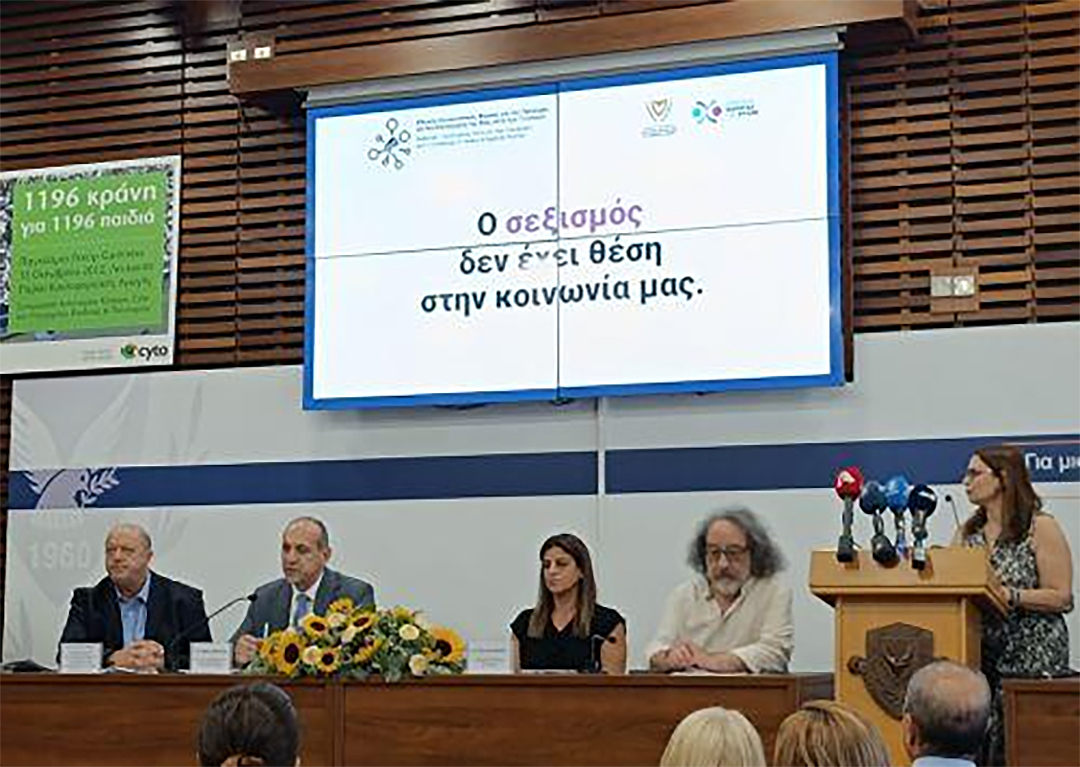One in three women in Europe has suffered some form of violence, Justice Minister Marios Hartsiotis said on Monday launching a Cyprus campaign against sexism.
Only one in eight reports incidents to the police, while one in five seeks help from social or other services, he added.
The campaign focuses on raising awareness of sexism, including online abuse, and informing the public about Cyprus’ 2020 law that made sexism a criminal offence. The law also covers online sexism.
Hartsiotis said sexism undermines dignity and can cause physical, psychological and social harm. He added that it fuels stereotypes and discrimination, creating hostile environments.
He stressed that changing attitudes in society is essential to building equality and a culture of zero tolerance.
A new committee, including police officers, has been formed to record and handle cases of sexism and gender-based violence.
The minister also underlined that the government’s wider strategy includes education campaigns in schools, training for public officials, and closer cooperation with civil society groups.
He said awareness programmes will target young people so they challenge stereotypes early, while professionals in health, justice and education sectors will receive new guidelines on how to identify and respond to sexist behaviour.
The aim is to create a long-term shift in culture that goes beyond punishment and builds a society where respect and equality are standard.
Gender equality commissioner Josie Christodoulou pointed to international studies showing rising levels of online abuse.
An Amnesty International report in 2017 found that nearly half of women who suffered online abuse described it as sexist or misogynistic.
She said sexism most often targets women but can also affect men, particularly those who do not conform to traditional gender roles.
While Cyprus has strengthened its laws, she stressed that legislation alone is not enough, and education is needed to change culture.
Christodoulou said that during Cyprus’ presidency of the EU Council in 2026, online violence against girls aged 13-18 will be a priority. The European Institute for Gender Equality is already conducting a study, and an international conference on cyber violence will be held in Nicosia.
The campaign aims to highlight how stereotypes affect society, underlining that ability has no gender.
Both officials urged victims and witnesses to report incidents and said tackling sexism requires the support of all parts of society.






Click here to change your cookie preferences